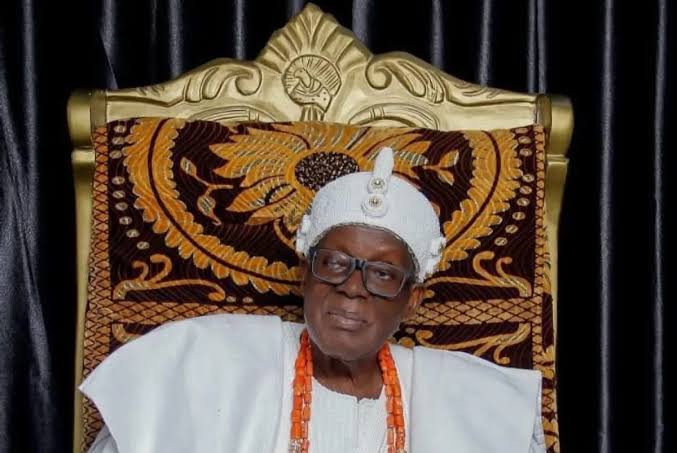By Peter Omopo
Ibadan, July 6, 2025 — The Olubadan of Ibadanland, His Imperial Majesty Oba Owolabi Olakulehin, has passed away, marking the end of a short but eventful reign that lasted just over a year. The highly revered monarch reportedly died in the early hours of Sunday, barely a year after ascending the throne as the 43rd Olubadan of Ibadanland.
Family sources and palace insiders confirmed the passing of the monarch, who had been battling age-related health complications in recent months. Oba Olakulehin, aged 85, was installed on June 2, 2024, following the demise of his predecessor, Oba Lekan Balogun.
The late Olubadan was known for his quiet wisdom, traditional discipline, and deep commitment to the preservation of Ibadan’s unique chieftaincy succession system — a hierarchical arrangement praised for its transparency, predictability, and order.
Oba Olakulehin’s reign, though brief, was marked by a renewed push for unity among Ibadan traditional councils, as well as efforts to preserve cultural heritage amidst urban modernization. He will be remembered for his call for the elevation of Ibadan’s cultural status and fostering peace among the Olubadan-in-Council members.
Ladoja Set to Emerge as Next Olubadan
Following Oba Olakulehin’s death, attention has turned to the next in line to ascend the ancient throne — High Chief Rashidi Adewolu Ladoja, the Otun Olubadan of Ibadanland and a former governor of Oyo State.
Under Ibadan’s unique chieftaincy system, succession to the Olubadan stool is determined by seniority and a clearly defined ladder system that rotates between two lines: the Otun (civil) line and the Balogun (military) line. As the most senior chief on the Otun line, Ladoja is now the presumed Olubadan-in-waiting, barring any unforeseen developments.
Chief Ladoja, 79, is an influential figure in Ibadan and Nigerian politics. He served as governor of Oyo State from 2003 to 2007 and has remained a prominent voice in both traditional and political circles. Known for his intellectual depth, pragmatism, and unwavering connection to grassroots politics, his possible ascension to the throne is seen by many as a convergence of tradition and modernity.
Despite his controversial past relations with the traditional institution — especially during a well-publicized clash over chieftaincy reforms introduced during the late Abiola Ajimobi’s administration — Ladoja has remained active within the Olubadan-in-Council and has steadily moved up the succession ladder.
Tributes Pour In
As news of Oba Olakulehin’s passing spread across Ibadan and beyond, tributes have begun pouring in from political leaders, cultural associations, and residents of the ancient city. Oyo State Governor, Seyi Makinde, is expected to release an official statement in the coming hours and likely to initiate the traditional mourning and succession protocols.
The Central Council of Ibadan Indigenes (CCII) and the Olubadan Advisory Council are also expected to convene in the coming days to coordinate burial arrangements and begin formal processes leading to the installation of a new Olubadan.
This would mark a historic moment in Ibadan’s cultural and political journey, as it moves toward the enthronement of a former state governor as its traditional ruler.
End of an Era, Beginning of Another
The death of Oba Olakulehin, though not entirely unexpected given his age and recent health struggles, is nonetheless a somber moment for Ibadanland. Yet, it also signals the continuity of a respected traditional system — one that has long been admired for its orderliness and resistance to disruptive succession crises.
With High Chief Rashidi Ladoja now poised to become the 44th Olubadan of Ibadanland, the stage is set for a potentially transformative era, where traditional authority meets contemporary governance experience.
More updates to follow as official confirmations and ceremonies unfold.

